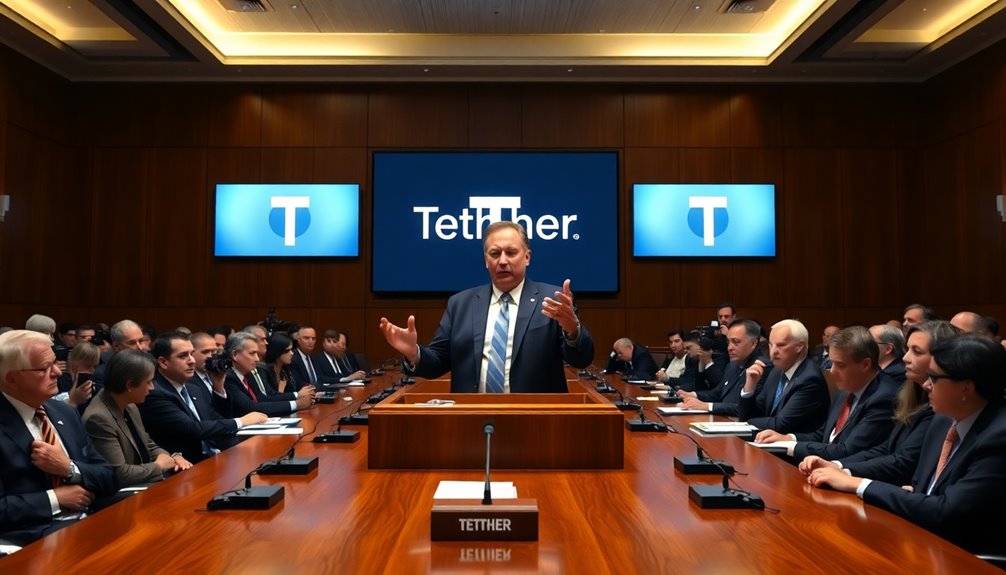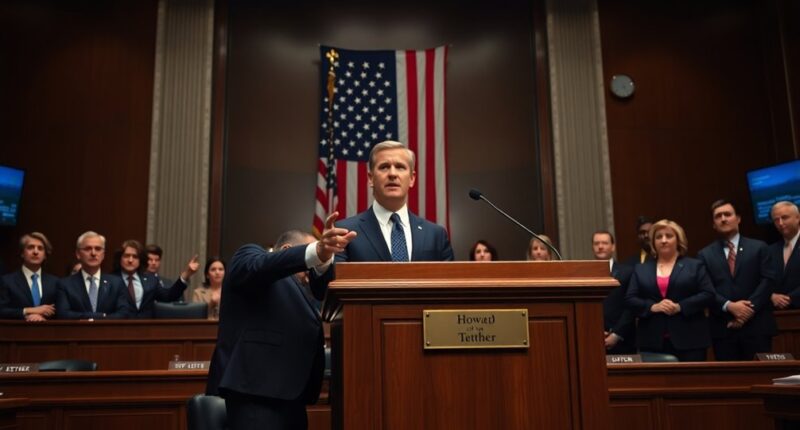In a recent Senate hearing, you might have noticed Howard Lutnick, a prominent Bitcoin advocate, defending Tether's critical role in the cryptocurrency market. He stressed the importance of transparency through regular audits, despite the ongoing concerns about Tether's financial practices. As the discussion around stablecoins intensifies, Lutnick's perspective raises important questions about accountability and regulation in this evolving landscape. What implications could his stance have for the future of cryptocurrency?

As concerns grow around the controversial stablecoin Tether, Bitcoin advocate Howard Lutnick steps forward to defend its role in the cryptocurrency ecosystem. You might've heard Tether's name linked to various illicit activities, from financing North Korean nuclear programs to supporting Mexican drug cartels. Despite these alarming associations, Lutnick emphasizes that Tether serves a crucial function in converting cryptocurrencies to fiat, boasting a market value of $139 billion. He argues that the stablecoin is essential for liquidity in the crypto market.
You may be aware that Tether has faced significant scrutiny, especially regarding its financial management. Since 2014, it has promised to complete a financial audit but has yet to deliver. Lutnick, however, points out that Tether claims to comply with "Know Your Customer" rules and anti-money laundering laws. He believes that regular audits are necessary for transparency and compliance, a position he reiterated during his recent Senate confirmation hearing.
His role as the CEO of Cantor Fitzgerald, which manages Tether's reserves primarily in US Treasury bonds, raises questions about potential conflicts of interest, especially given his ties to Donald Trump. During the hearing, Democratic senators scrutinized Lutnick's ability to lead the Commerce Department without bias due to his financial entanglements with Tether. Yet, Lutnick continues to advocate for the stablecoin, asserting its importance in the broader market.
He supports the idea that stablecoins, including Tether, should be regularly audited and backed by reliable assets like US Treasuries. This move, he argues, could help mitigate concerns about the economic impact of Tether's use in illicit activities. Lutnick believes that regular audits of US stablecoins could enhance trust and stability in the cryptocurrency ecosystem.
Looking ahead, Lutnick envisions a future where artificial intelligence plays a role in regulating blockchain-based crimes linked to stablecoins. His proposal for a robust regulatory framework aims to address the increasing recognition of the need for oversight in this rapidly evolving landscape.
While Tether continues to promise an audit, the pressure for accountability mounts. Lutnick's commitment to transparency reflects a broader desire for stability in the crypto market, which could have significant implications for its global influence.
In a climate rife with skepticism, Lutnick's support for Tether and stablecoin audits signals a push for legitimacy and a pathway toward a more regulated cryptocurrency ecosystem. Whether his efforts will bear fruit remains to be seen, but the conversation surrounding Tether is more important than ever.









